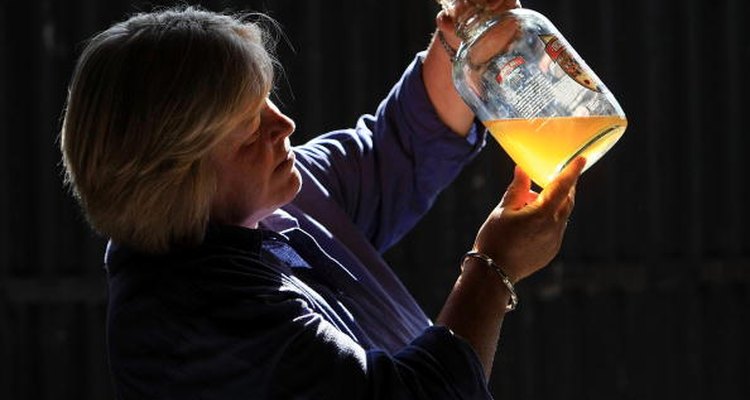
Hard cider is apple cider that has been fermented to produce an alcoholic beverage. It can be purchased at some retail stores as cider or beer, though many people choose to make it at home. Mason jars are a popular way to store homemade hard cider, but some precautions need to be taken; There are a few risks to storing hard cider in Mason jars.
Contaminated Jars
Throughout the process of making hard cider, cleanliness is very important. Everything must be sanitized properly to prevent bacteria and other germs from entering the process and contaminating the cider. Before pouring cider into the Mason jars, you must thoroughly clean them and let them dry completely. Failure to do so could contaminate the cider, which means it could change color, flavor or even make you sick.
Improper Storage
Mason jars have been used for food canning and storage for more than 150 years. People are used to preserving items in them and then being able to store them in a pantry. However, with hard cider, you must store it in the refrigerator. Leaving hard cider out in the pantry or on a shelf like a jar of preserved tomatoes can cause it to spoil quickly, even if it doesn't look spoiled. Drinking it can give you food poisoning and make you very ill.
Broken Glass
Hard cider will keep for about a week inside the refrigerator once it has been stored in a Mason jar. After a week, you must freeze the cider to make sure it doesn't go bad. Liquids that are frozen expand, which in this case can cause the glass Mason jars to crack. Some sources warn strongly against freezing Mason jars; others say it's safe if space is left in the jar for the freezing liquid to expand.
Avoiding the Dangers
To avoid the dangers that come with storing hard cider in Mason jars, make sure you sanitize all of your equipment and jars. Wash and dry with hot, soapy water then sanitize in a mixture of 1 tablespoon bleach per gallon of hot water. Soak for at least 1 minute. When pouring the cider into the Mason jars, be sure to leave at least a half-inch of space at the top to allow for expansion should you have to freeze the jars. Check the jars after freezing and discard any, including their contents, if they have cracks.
Related Articles

Can Drinking Old Vodka Hurt You?

How to Make Hard Cider With Baking Yeast
How Long Can Food Stored in Canning ...

Why Does Wine Not Expire?

Does Limoncello Liqueur Need to Be ...

Can You Freeze Canned Goods?
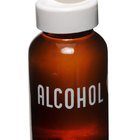
How to Store Rubbing Alcohol

How to Make Elderberry Jam

Does Brandy Freeze?

How Long Can a Bottle of Vodka Last ...

What Are the Best Containers to Freeze ...

How Long Does Liquor Keep in Storage?

How to Vacuum Seal Jars
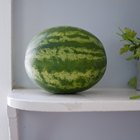
How to Freeze Fresh Watermelon

How to Make Homemade Beer Yeast
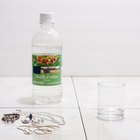
How to Sterilize Earrings

How to Make Your Own Aged Potato Vodka ...
Does Lemon Juice Go Bad If Not ...
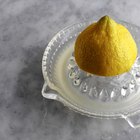
What Is the Freezing Point of Fruit ...

How Long Does Tomato Juice Last After ...
References
Writer Bio
Melissa Martinez has been a freelance writer and copy editor since 2003. She specializes in Web content and has been published in the "Houston Chronicle" and is now the section editor for a minor league sports news wire. She attended Seattle University.
Photo Credits
Christopher Furlong/Getty Images News/Getty Images